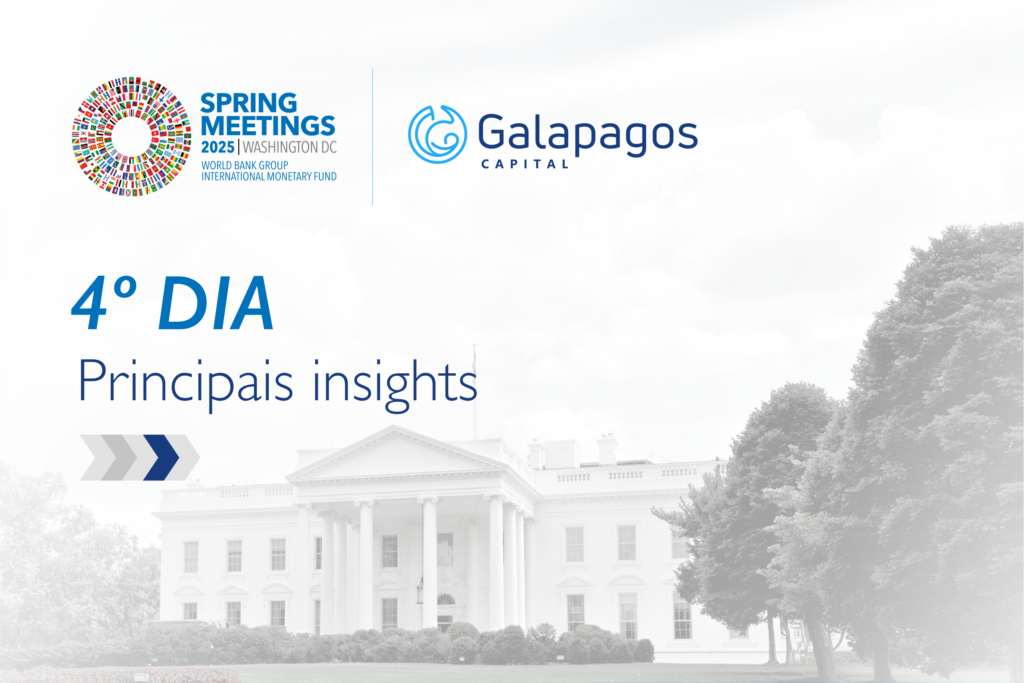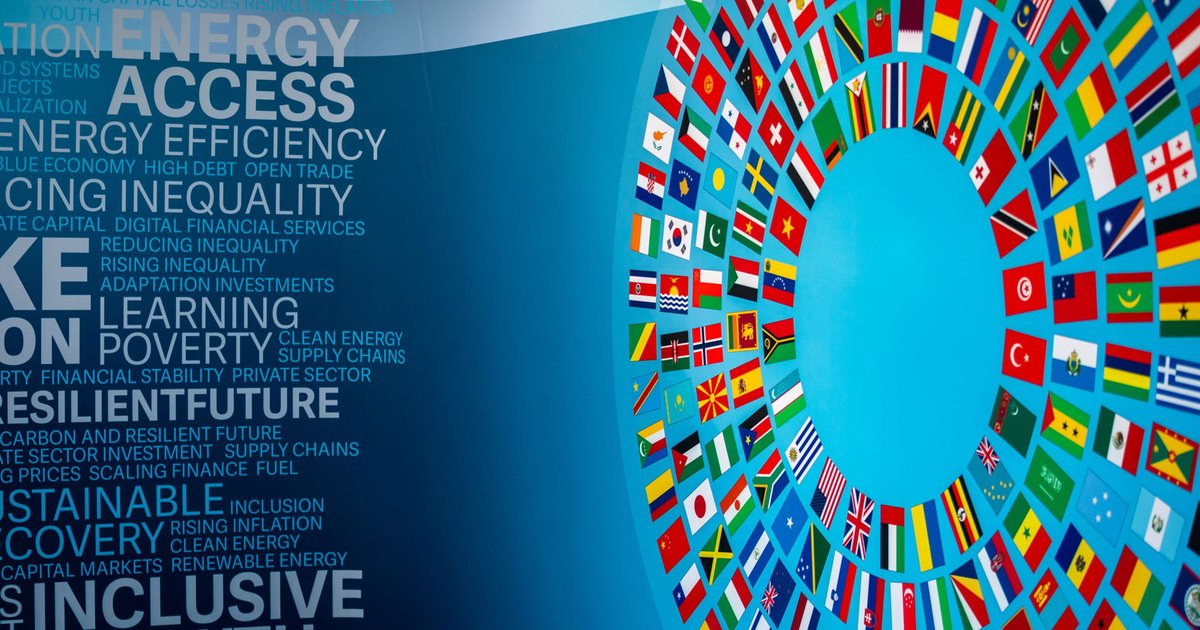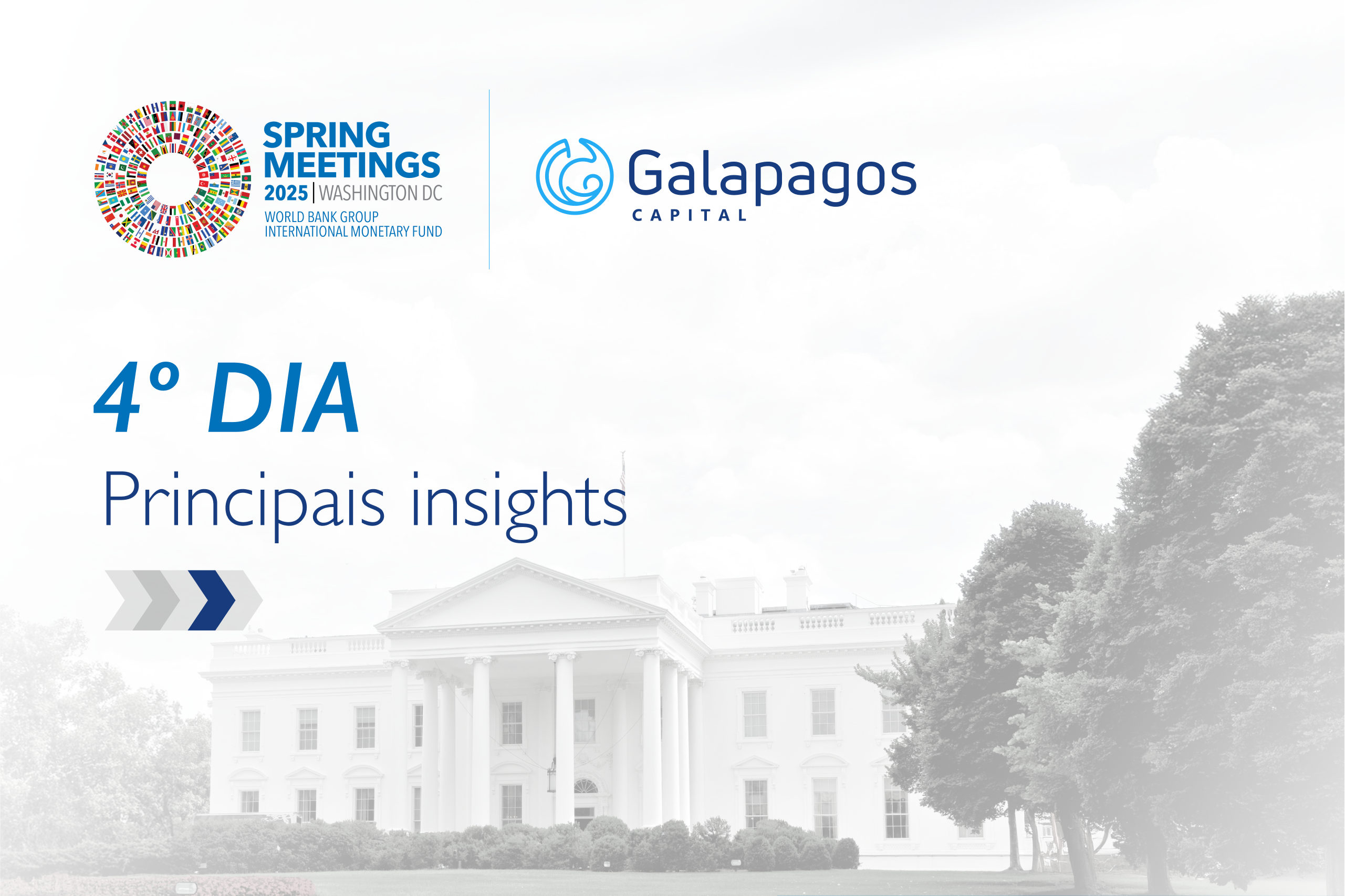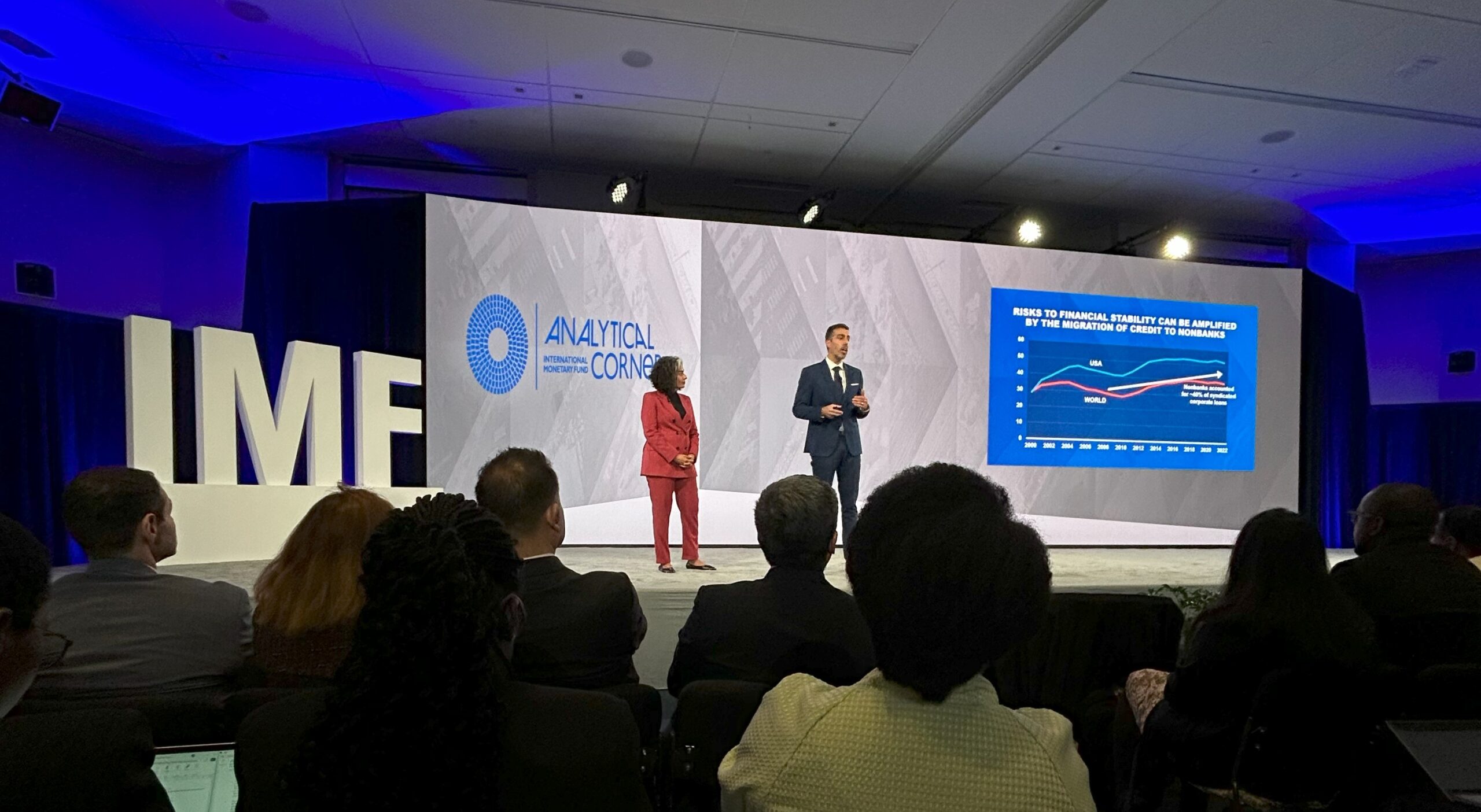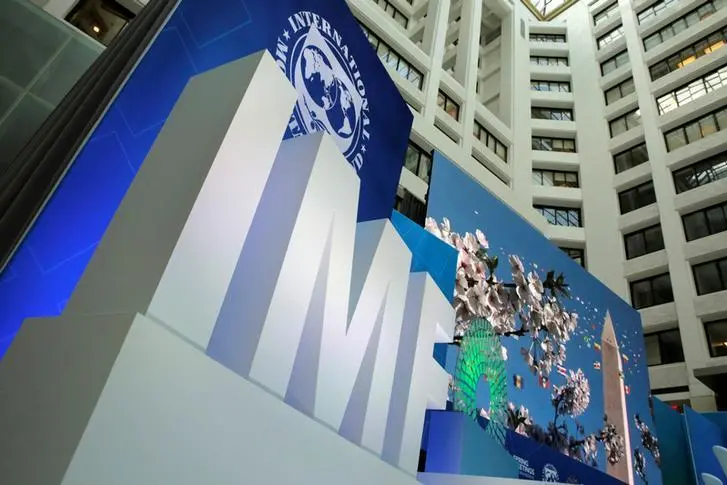On the fourth day of the 2025 IMF Spring Meetings, Galapagos Capital’s Chief Economist, Tatiana Pinheiro, attended panels connecting global macroeconomic themes—such as fiscal discipline, international trade, and monetary policy (Política Monetária na Era do Tarifaço: Mudanças Estruturais e Choques de Oferta) —with practical decisions already influencing investment strategies. The international backdrop demands careful attention and a deep understanding, especially at a time of fragile global growth, rising trade tensions, and mounting fiscal challenges across multiple economies.
An Agenda for Global Realignment
IMF Managing Director Kristalina Georgieva presented the Fund’s new Policy Agenda with a clear message to member countries: it is time to put fiscal houses in order.
The IMF’s assessment is that global growth remains fragile and that its recovery is contingent on the implementation of structural reforms, the maintenance of fiscal discipline, and the strengthening of international cooperation.
Low-income countries face even greater challenges, as they must balance inflation control with the need to protect strategic investments.
In this context, the IMF stressed that issues such as climate change and gender equity can no longer be treated as peripheral; they are central to maintaining global macroeconomic stability.
China’s growth forecast was revised down from 4.6% to 4.0%, with the IMF recommending that China shift efforts toward boosting domestic consumption and reducing state intervention.
Argentina received praise for progress in lowering inflation and poverty, while African economies were reminded of the importance of strengthening tax collection and promoting regional trade integration.
The overarching message is clear: this is not a cycle of acceleration, but of realignment.
Reforms, digitalization, and greater regional integration must form the foundation of a more sustainable recovery.
Global Trade Under Pressure
Another major theme on the fourth day was the impact of trade tariffs on international confidence and global trade flows.
The U.S. tariffs panel highlighted that the greatest risk lies not in the tariffs themselves but in the erosion of institutions supporting multilateral trade, particularly the World Trade Organization (WTO).
U.S. tariffs—justified on national security grounds—challenge the fundamental principles of the global trading system and raise concerns about the risks of commercial fragmentation.
Global goods trade is projected to decline by 0.2% in 2025, with the potential for deeper contraction—up to 0.6 percentage points—should widespread retaliation materialize.
Moreover, the direct impact of tariffs on employment is seen as modest, given the increasing automation of global industry.
Experts argue that a more efficient fiscal policy would be a more effective tool for adjusting the U.S. trade deficit than raising barriers.
The IMF emphasized that strengthening multilateralism and restoring confidence in international rules is critical to avoid permanent institutional setbacks.
The New Dynamics of Monetary Policy
In a context marked by successive shocks—including wars, persistent inflation, and new trade barriers—central banks face the ongoing challenge of adjusting monetary policy with agility and precision.
One of the primary lessons from the panels is the need to move away from fixed policy models and adopt responses tailored to the specific nature of each shock, whether supply-side or demand-side.
Although central banks in some cases responded late to inflation, their subsequent actions were effective, bringing inflation down with limited impact on economic activity.
In the United States, the recommendation is to maintain elevated interest rates to safeguard inflation expectations.
In Europe, by contrast, tariffs are acting as a demand shock, potentially opening space for interest rate cuts in the coming months.
An effective monetary policy framework must be based on three core pillars:
- Constant adaptation of instruments to evolving conditions
- Judicious understanding of the limitations of traditional models
- Preservation of institutional credibility, with full independence of central banks
In addition, closer coordination between monetary and fiscal policy was highlighted as essential, particularly in Europe, where the European Central Bank has been bearing disproportionate responsibility for macroeconomic stabilization in recent years.
The Brazilian Case: Caution Amid Uncertainty
Brazil also featured prominently in the day’s discussions.
The Central Bank of Brazil reinforced that the interest rate hiking cycle is not yet over, given lingering uncertainties around both inflation and fiscal dynamics.
Inflation expectations remain unanchored, and while signs of economic slowdown are emerging, they are still tentative.
Consumption and investment are losing momentum, although the labor market remains resilient.
The Central Bank has adopted a cautious stance, avoiding premature commitments and acknowledging the slow transmission of monetary policy effects.
Recent measures to expand consumer credit, such as adjustments to payroll-deductible loans, have generated skepticism about their effectiveness in stimulating demand.
In this scenario, interest rates remain highly restrictive, but the Central Bank is closely monitoring the effects of fiscal measures and ongoing stimulus before signaling any policy shifts.
To watch: A New Global Economic Cycle Ahead
The fourth day of the IMF Spring Meetings made it clear: the world is at a moment of transition and rebalancing.
For investors, it is crucial to closely track the unfolding global policy responses and understand the underlying forces shaping the next economic cycles.
Fiscal discipline, structural reforms, institutional stability, and a new framework for international trade governance are now central topics—and will be critical drivers of market evolution in the coming years.
Want to receive the next insights directly in your inbox? Click here (Spring Meetings) and sign up on our landing page to receive all real-time updates.Produced by Tatiana Pinheiro, Chief Economist at Galapagos Capital.
